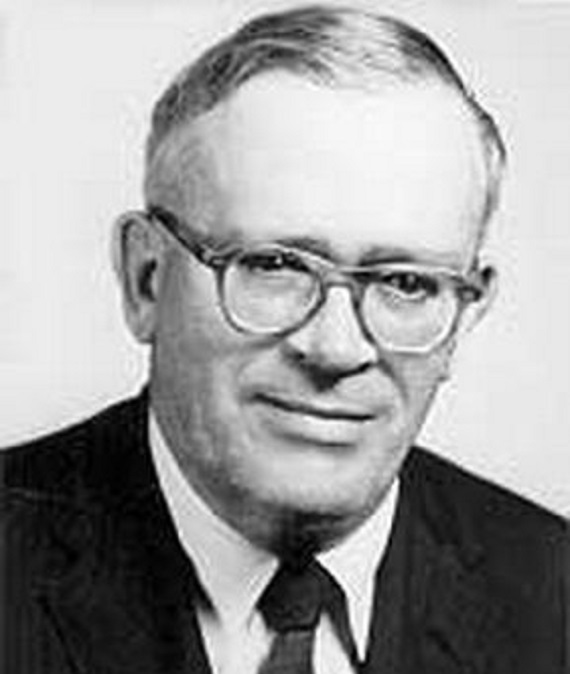It has been fifty-seven years since the Weaverville, North Carolina native Richard Weaver (1910-1963) published an article in Modern Age titled Up From Liberalism (Fall-Winter 1957-8, Vol. 3, No. 1, p 21-32). In the article he describes his initial introduction to and infatuation with leftist ideology especially liberalism, progressivism, and socialism. His infatuation had its origin in academia populated with socialists and left leaning professors. He described his professors as men who “read and circulated The Nation” men who were often engaged in organizing “liberal or progressive clubs” and “of course they reflected their positions in their teaching.” By the third year of his studies at the University of Kentucky he had become an ardent liberal/progressive and was convinced that “all opposed to these trends were people of ignorance or malevolence.” It seemed a practical and reasonable step to join the American Socialist Party—which he did. But, after joining, reality struck and according to Weaver “My dissolution with the Left began with this first practical step.”
Up From Liberalism is a warrior-poet’s assault against the crass materialism represented by socialism and its thinly disguised stalking horses of liberalism and progressivism. Weaver destroys the theory of socialism on the spiritual level in a manner similar to the way in which Ludwig von Mises and F. A. Hayek destroyed the theory of socialism on the material level. Mises demonstrated that socialism is doomed to ultimate failure because of its inability to adequately calculate cost of goods and services supplied by government. The inability to calculate cost prevents an efficient distribution of scarce resources. This then results in material scarcity and the material/economic impoverishment of society. The socialist produced impoverishment falls upon society, not upon government and its lackeys. Hayek pointed out that socialist central planners could not efficiently plan for society because of socialism’s inherent knowledge problem. Central planners need complete and perfect knowledge to efficiently allocate society’s scarce material resources. No human or any group of human beings has perfect knowledge—thus socialism’s economic failure is a foregone reality. Mises and Hayek viewed socialism’s failure as being rooted in the law of scarcity—limited resources vs. unlimited wants and demands for those resources. Limited knowledge and the law of scarcity make rational planning impossible under socialism. Weaver, on the other hand, saw socialism’s failure as being rooted in its adoption of materialism and its rejection of spiritual values necessary for a healthy and prosperous society. A society composed of self-reliant people linked together in a social order based upon kith and kin relationships.
At Vanderbilt University Weaver came under the influence of the Southern Agrarian philosophy. The spiritual values encompassing the Agrarian ideal were radically different from socialism’s crass materialistic ideals that had infatuated Weaver in his undergraduate studies. This contrast no doubt played a major part in bringing the North Carolina boy back to his people, his kith and kin of the South “I feel that my conversion to the poetic and ethical vision of life dates from this contact with its sterile opposite.”
Reading Up From Liberalism gives an insight to why Southerners continue to purchase books about the War for Southern Independence. Southerners purchase these books not so much to discover historical data about battles and leaders. These books are purchased in an endless quest to understand the “why” of their Southern history; why the Northern majority felt no sense of shame (then or now) about invading the Southern minority who only asked to be left alone; why “those people” felt no ethical restraints when unleashing fire, sword, rape and murder on innocent black and white civilians; and why so many of their Southern kith and kin, who had no personal interest in the peculiar institution of slavery, were willing to resist to the very end against the overwhelming might of Lincoln’s newly created Federal Empire? Southerners, many at an unconscious level, are seeking the spiritual “why” of the so called “Lost Cause.” Southerners who understand the “why” of the Lost Cause are the most vocal in arguing that the cause of a people’s freedom may be repressed by an empire’s tyrannical might but the Cause is never “lost” as long as even one Southerner understands and remembers.
Weaver rejects contemporary “pragmatic verdict of the world.” In Weaver’s assessment temporal success is not a proper criterion for morality and virtue. He understood that a “Lost Cause” may well have been the right cause. He encourages the study of lost causes as a way to turn “history into philosophy” and no doubt inject a needed dose of piety into American nationalism.
The rejection of piety, humility, and an understanding of man’s innate limitations when dealing with the ordering of society is the underlying spiritual “fatal flaw” that makes any socialist, liberal, or progressive utopia unattainable. Weaver described it thusly “…the radical is engaged in denying…the existence of evil…assuming the perfectibility of man.” In place of traditional Christian concept of spiritual redemption the socialist/liberal/progressive has complete faith in and relies upon the compulsive power of government as an effective means to bring materialistic salvation to the masses. Even if it were possible to bring about such materialistic salvation—which of course it is not—but even if it were possible the end result would be masses of empty shells totally devoid of the spiritual values that make us human beings. Socialists, liberals, or progressives promise progress through aggression and compulsion or as Southerners have experienced—Yankee salvation via massed legions of bloody bayonets. Such is the hubris of those people residing in the City on the Hill. Those people would be Weaver’s antagonists for the rest of his life.
Weaver issues a warning about the danger posed by central planners—today we would describe them as America’s Republican and Democratic ruling elite in Washington. In 1958 he warns “the only way that a rigid, centralized control can be maintained is to keep the people living in a mentality of war…fearful of a real or imaginary enemy…to invoke ‘the national security’ to silence opposition and even render it disreputable.” He saved his most ominous warning for the last page of his article “…but let some strong man appear, who promises salvation through ‘leadership’ and the liberal becomes indistinguishable from the totalitarian.” Hope and change anyone?
Up From Liberalism demonstrates that socialism and its stalking horses of liberalism and progressivism are an inherent failure. It will always be a failure because it presumes to be able to perfect man—the un-perfectible. It attempts to replace spiritual values with crass materialism leading eventually to greed, jealousy and violence. Liberals will always demand more government to regulate and control these social ills—social pathology inherent in human nature but exacerbated by prior liberal policy, programs, rules, regulations, laws and taxes.
Richard Weaver was a leader in modern Southern intellectual thought. His contributions were many but one of the most important was that he provided the non-materialistic rationale for the ultimate failure of socialism, liberalism and progressivism. Hopefully it is not too late to learn the lessons provide by this great Southerner.







